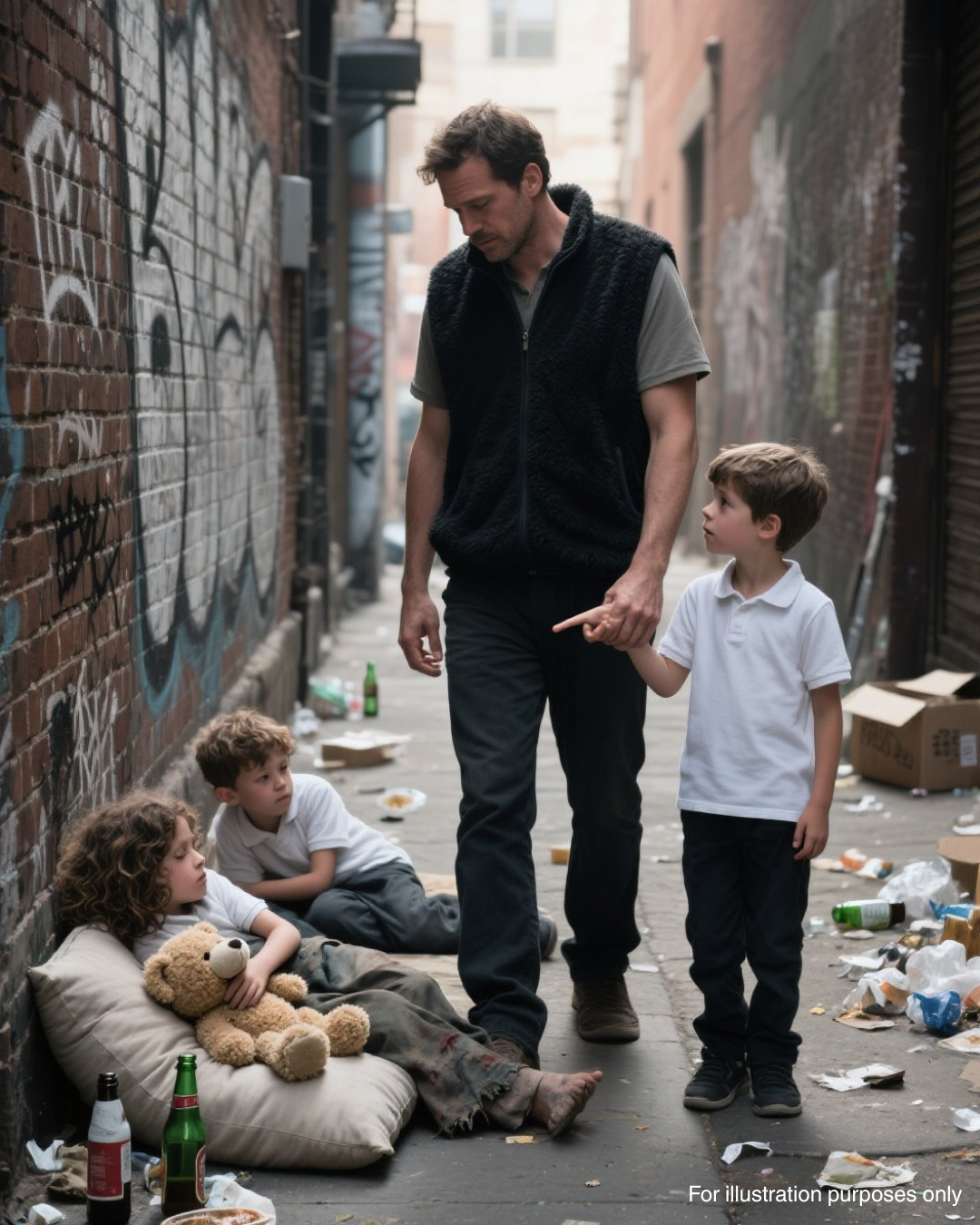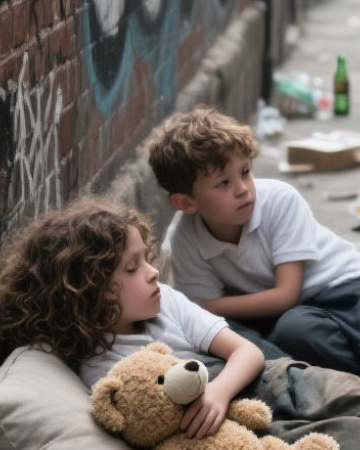
“Dad… those two kids sleeping in the garbage look just like me,” five-year-old Pedro whispered, pointing to the tiny figures curled up on a threadbare mattress on the sidewalk. Eduardo Fernández stopped mid-step, following his son’s finger with a tightening chest. Two children, seemingly the same age as Pedro, were huddled together, wearing torn clothes, their bare feet dirty and scraped.
A knot formed in Eduardo’s stomach, but he tried to gently pull Pedro toward the car. They had just left his private school for their usual Friday afternoon drive home. Normally, Eduardo avoided this part of the city, preferring wealthier, cleaner streets—but traffic and an accident had forced this detour.
The narrow streets teemed with street vendors, playing children, and homeless people. But Pedro, surprisingly strong and determined, broke free and ran toward the children, ignoring his father’s protests. Eduardo hurried after him, alarmed not just by the conditions, but by the dangers: petty crime, drugs, and violence were common in this area.

Pedro knelt beside the mattress, inspecting the two children closely. One had wavy light-brown hair, similar to his own, and the other had darker skin—but both shared unmistakable facial features with Pedro: the same arched eyebrows, the same oval face, and even the dimple in his chin. Eduardo froze. The resemblance was uncanny, almost unreal.
“Pedro, we need to go,” Eduardo said, trying to lift his son gently, but he couldn’t look away from the two kids.
“They look just like me, Dad. Look at their eyes,” Pedro insisted. One of the children slowly opened his green eyes—Pedro’s exact shade, shape, and intensity. The younger sibling stirred, and Pedro gently woke him.
The boys, Lucas and Mateo, hugged each other, trembling from both fear and cold. Eduardo noticed more eerie similarities: the same curls, posture, gestures, and even breathing patterns Pedro exhibited when nervous. The older boy instinctively protected the younger one, just like Pedro did at school.
“What are your names?” Pedro asked innocently.
“I’m Lucas,” the older boy answered. “And this is Mateo, my little brother.”
Eduardo’s heart raced. Lucas and Mateo bore names he and his late wife had chosen for hypothetical triplets, carefully saved on a piece of paper he had never shared with anyone. The coincidence was impossible.
Pedro chatted with the boys naturally, brushing their grimy hands with kindness, oblivious to the filth around them. Mateo explained, “We don’t have a real home. Our aunt left us here. She said someone would come help, but she hasn’t returned.”
The name Marcia hit Eduardo like a thunderclap—Patricia’s troubled younger sister, long disappeared, struggling with addiction and financial hardship, who had vanished after Patricia’s death.
Pedro, eyes full of concern, touched Lucas’s arm. “They’re so hungry, Dad. Look how weak they are.” Eduardo leaned closer, seeing the children’s severe malnourishment: pale faces, sunken eyes, tattered clothes, and tiny hands scraped from scavenging.
“Did you eat today?” Eduardo asked.
“Yesterday, a man at a bakery gave us an old sandwich,” Mateo said quietly. “Today, nothing. People look at us but walk by like we aren’t there.”
Pedro instantly took a package of cookies from his school backpack, offering them generously. “They can eat everything,” he said. “We always have lots of food at home.”
Lucas and Mateo looked at Eduardo, waiting for permission, polite and respectful despite the harsh streets surrounding them. Eduardo nodded, stunned, struggling to process how fate had placed these children—living on the brink of despair—directly in his path.


